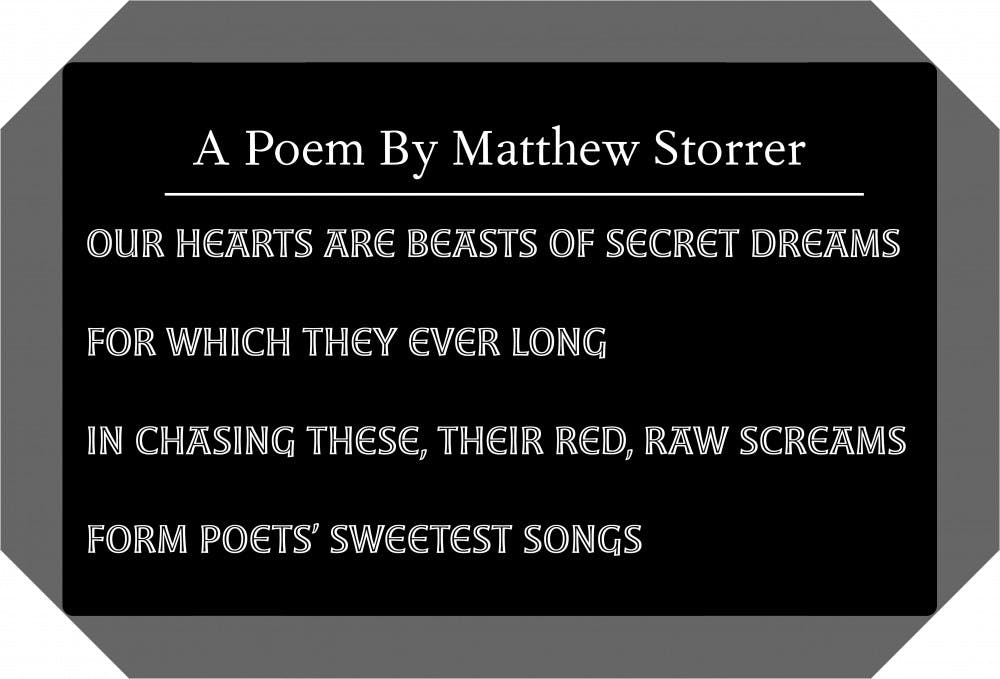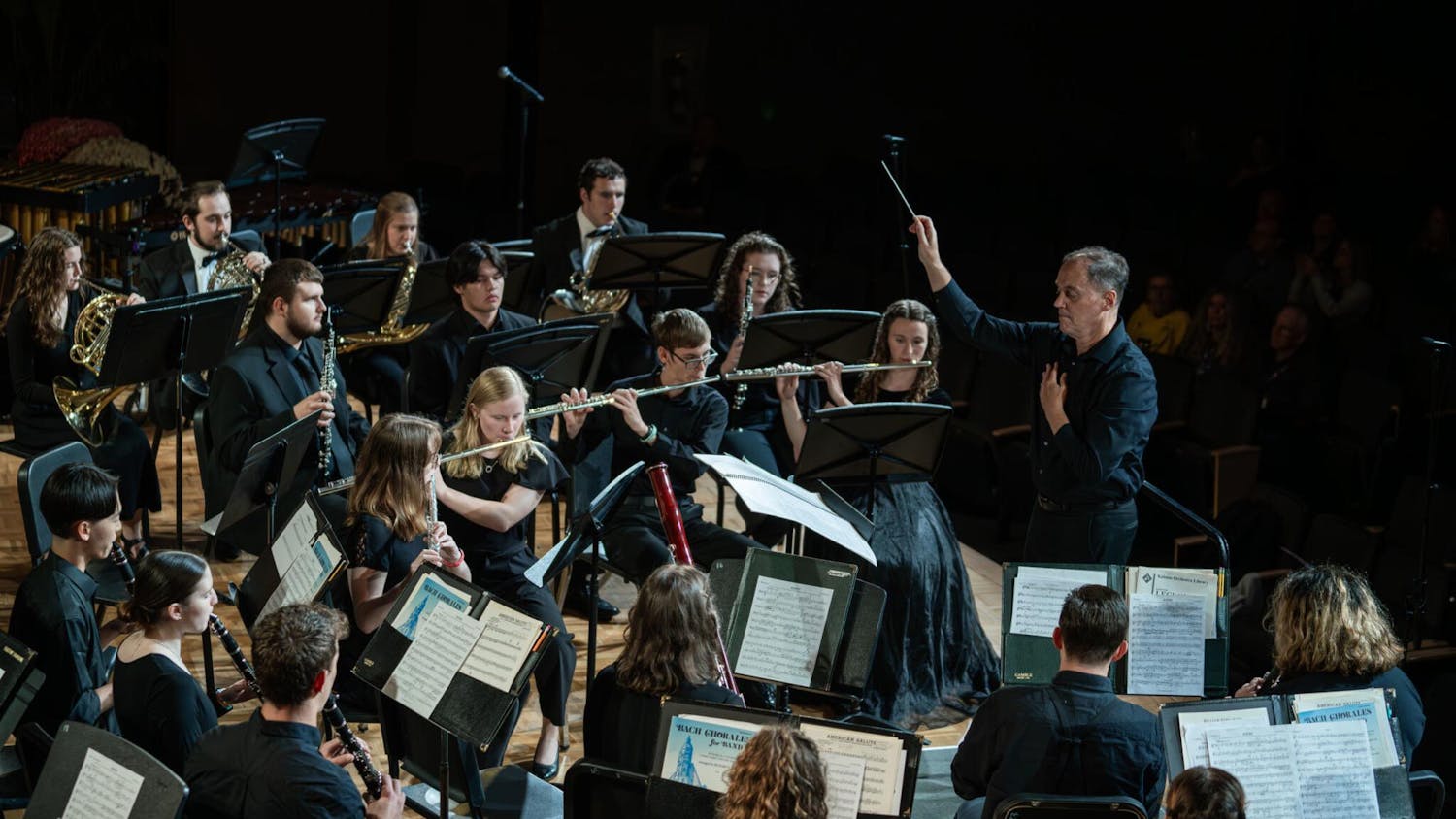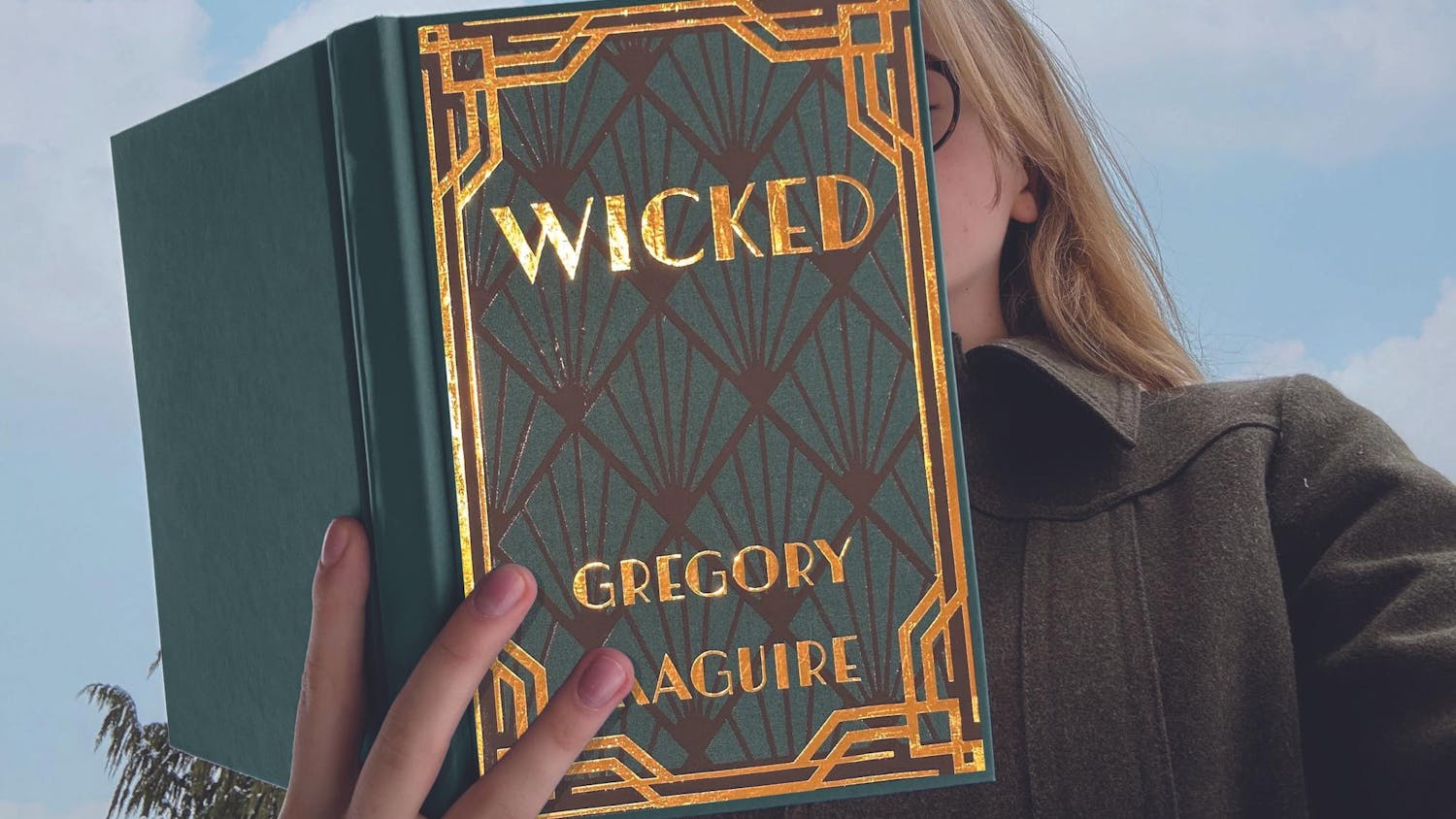By Matthew Storrer | Contributor
A week or so ago, I was walking out to my car on some errand or another when I passed by a group of men heading in the opposite direction. I couldn't help but overhear some of their conversation, and what I heard disheartened me. Though I don't remember the exact words, it was something along the lines of how poetry was silly because poems can be interpreted to mean anything.
Of course, I can't fault these men, as there was a time in my own life when I thought similarly. However, I've since learned that not only is trying to wing an interpretation to a poem a good way to fail an exam, but it is also incredibly shortsighted and naïve. In our modern world that is so focused on tangible, measurable value, it may feel we have outgrown the need for poetry, but I think perhaps this is why we need it now more than ever.
Poetry is countercultural. We live in a world (and even more so, a nation) that prioritizes efficiency, productivity, saving time and getting results. Life is fast-paced, and every second not used is a second wasted. Poetry refuses to fit this mold; by its very nature, it actively resists being sorted, labeled and forgotten.
Sure, you can rush through a poem and immediately decide you know everything it is saying, but what you're doing is a disservice to yourself, not to the poem. The poem stands alone, independent of you. As associate professor of English Daniel Bowman so elegantly put it in Wednesday's chapel, poetry forces us to slow down. It challenges us to contemplate, to wonder, to feel, to savor, to wrestle.
You can't get everything out of a poem in one sitting. Not good poems, at least. Perhaps that's why many people have an aversion to poetry, but it is important that we struggle with art. It's part of being human.
Another way poetry is countercultural is that it exemplifies the highest refinement of language in a culture of meaningless talk. I have known poets who wrestle with whether or not to include a simple word or even punctuation mark in their poems. You cannot find a more deliberate, careful application of words than in poetry. It is choice gourmet in a society increasingly satisfied by fast food.
Like all art, poetry communicates deep truths, and we need truth dearly. Lies permeate our world to the point that cynicism of politics and news is almost required. We desperately thirst for truth, and poetry is a spring in the desert. It cuts through all of the meaninglessness that surrounds us on social media and television and gives us a glimpse beyond the immediate, but it does so only if we let it.
Perhaps the greatest reason we need poetry is because it bypasses the masks we wear and gets to the persons beneath them. To read a poem is to get a glimpse into the author's soul, and many times that glimpse is ugly. Poetry is real. It's raw. It reveals parts of us we don't always like to talk about. Maybe that's another reason why many people don't like poetry. We don't like to be vulnerable, and we don't like it when others are vulnerable with us. We like the comfort that superficiality brings. Poetry doesn't allow us this luxury.
We need poetry. We need it for truth, for beauty and for each other. So I challenge you, reader, to read a poem today. Sit a while and think about it. Relish it. The homework will wait.





